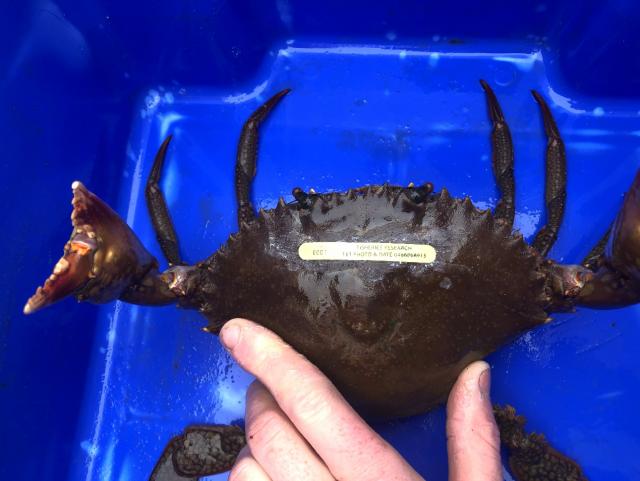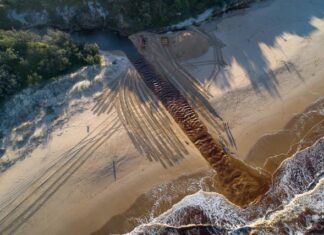Fishers who support research by reporting tagged mud crabs in Queensland can get their claws on free escape vents.
The reports will help researchers track the spawning migration of female mud crabs and learn more about the species.
Department of Agriculture and Fisheries principal scientist Dr Julie Robins said the research would help ensure Queensland mud crab fisheries remained sustainable.
“The research is part of a bigger project that aims to provide a better information base to assess and sustainably manage Queensland’s mud crab fisheries,” Dr Robins said.
“There is a lot of folklore about female mud crabs and where they go to spawn.
“Reports of tag recaptures will help us understand where females move to and how long they live for.”
If you find a mud crab with a yellow tag on its carapace, text a photo of the crab—along with the date and capture location—to 0466 868 913. (There’s no need to remember this number: it’s printed on the tag.)
“Remember, it is illegal to retain female mud crabs in Queensland,” Dr Robins said.
“If you do handle a female mud crab, it must be immediately returned unharmed to the water.”
Dr Robins said those who reported a tagged mud crab would be offered a free escape vent.
“Escape vents are compulsory in commercial mud crab pots in Queensland, but use in recreational pots is also encouraged,” she said.
“The vents enable sub-legal sized mud crabs and fish to escape, making it easier for people to sort their catch and reducing the risk of overcrowded crabs injuring one another.”
Researchers have tagged about 500 female mud crabs in Moreton Bay, Hinchinbrook Channel, rivers in Weipa and Mapoon and Broadsound/Stanage. They plan to tag another 1500 mud crabs in other areas of Queensland.
This research project is co-funded by the Fisheries Research and Development Corporation and involves researchers from the Department of Agriculture and Fisheries, CQUniversity and the NSW Department of Primary Industries.








